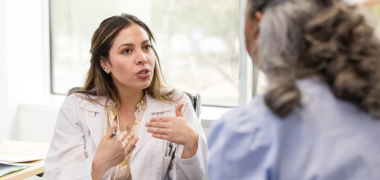
How do I become a clinical scientist?
Bachelor of Laboratory Medicine (Honours)
- There are no mandated entry requirements.


Bachelor of Biomedical Science (Medical Science)
- There are no mandated entry requirements.


Bachelor of Biomedical Science (Microbiology and Immunology)
- There are no mandated entry requirements.


Bachelor of Biomedical Science (Pharmacology)
- There are no mandated entry requirements.


Master of Medical Science
- There are no mandated entry requirements.
 James Cook University
James Cook University
Bachelor of Advanced Science (Honours) (Genetics)
- There are no mandated entry requirements.


Related occupations
Medical Laboratory Technician
A Medical Laboratory Technician performs tests on bodily fluids and tissues to assist in diagnosing medical conditions while maintaining patient confidentiality.
Pathology Assistant
A Pathology Assistant prepares and tests samples in medical labs, working independently or in teams, ensuring accurate results using specialist equipment.
Pathology Collector
A Pathology Collector collects and labels bodily specimens from patients, ensuring accurate paperwork and specimen handling for lab testing.
Phlebotomist
A Phlebotomist collects blood samples, prepares them for testing, and must possess excellent interpersonal skills and attention to detail.
Clinical Research Coordinator
A Clinical Research Coordinator manages trials, focusing on recruitment and data collection, requiring strong communication and organisational skills.
Medical Laboratory Scientist
A Medical Laboratory Scientist performs tests on specimens to diagnose diseases, analysing samples and collaborating with healthcare professionals to ensure accurate patient care.
Medical Scientist
A Medical Scientist performs lab research and diagnostic tests to aid in disease diagnosis and treatment, collaborating with healthcare professionals.
Pathologist
A Pathologist examines tissues, cells, and fluids to diagnose diseases, providing essential insights for treatment decisions and medical research.
Medical Researcher
A Medical Researcher advances healthcare by designing experiments, analysing data, and collaborating on clinical trials.
Immunologist
An Immunologist studies the immune system to diagnose disorders, develop new treatments, and improve vaccines for public health.
Geneticist
A Geneticist studies genes and heredity to analyse genetic disorders and develop treatments, conducting experiments and interpreting complex data.
Cytologist
A Cytologist studies cells to diagnose diseases, particularly cancer, by analysing samples and collaborating with medical professionals for accurate patient care.
Hospital Scientist
Hospital Scientists conduct tests on samples to aid in diagnosing and treating patients, ensuring accurate results to support healthcare.
Clinical Pathologist
A Clinical Pathologist analyses laboratory samples to diagnose diseases, interpret test results, and collaborate with medical teams for patient care.
Clinical Researcher
A Clinical Researcher advances medical science by designing and managing clinical trials, collaborating with stakeholders to ensure ethical compliance.
Clinical Research Associate
A Clinical Research Associate monitors clinical trials for compliance, coordinates with sites, and ensures accurate data collection and reporting.
Medical Technologist
A Medical Technologist conducts lab tests on samples to assist in diagnosing diseases, ensuring accurate results for patient care.
Histotechnologist
A Histotechnologist prepares and processes tissue samples for diagnosis, ensuring accuracy and organisation in a lab setting.
Further reading


A Complete Guide to Becoming a Clinical Facilitator
21st October 2024)
